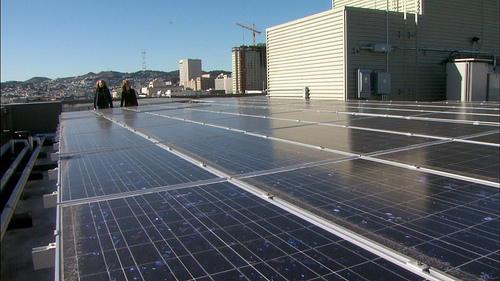
A plan to help homeowners afford solar panels and other energy-efficient appliances is in limbo. In 2008 California was the first state to pass legislation enabling PACE (Property Assessed Clean Energy) programs, which provide loans for property owners to buy expensive energy-saving devices. The Obama Administration has supported the plan, granting millions of dollars in stimulus funds for the programs. Cities and counties, once their states have given them the go-ahead, set up programs that issue bonds for the appliances. The homeowners then repay the loans through add-ons to their property taxes.
That’s the heart of the problem, according to letters sent by Fannie Mae and Freddie Mac to lenders in May. When homeowners default, usually tax assessments take priority over the mortgage when the debts are repaid. But the federal mortgage backers warn in their letters that “an energy-related lien may not be senior to any mortgage.” (from the Freddie Mac letter (PDF); the Fannie Mae letter (PDF) has slightly different wording). The news has thrown lenders into a state of confusion.
According to articles in Grist and a blog post in the New York Times, now cities (including San Francisco) are suspending their PACE programs, and solar installation companies are losing work–and laying off workers.
The first PACE bond in the country was issued in Berkeley, in January 2009. Since then San Francisco, Sonoma County, and Yucaipa, among other cities and counties in the state have begun PACE programs. San Diego and LA have plans in the works. But without more clarity from Fannie Mae and Freddie Mac on if they will back mortgages given to homeowners who have taken advantage of PACE, it’s unclear if the programs will continue.
One thought on “A Clean Energy Plan in a Messy Situation”
Comments are closed.

But without more clarity from Fannie Mae and Freddie Mac on if they will back mortgages given to homeowners who have taken advantage of PACE, it’s unclear if the programs will continue.